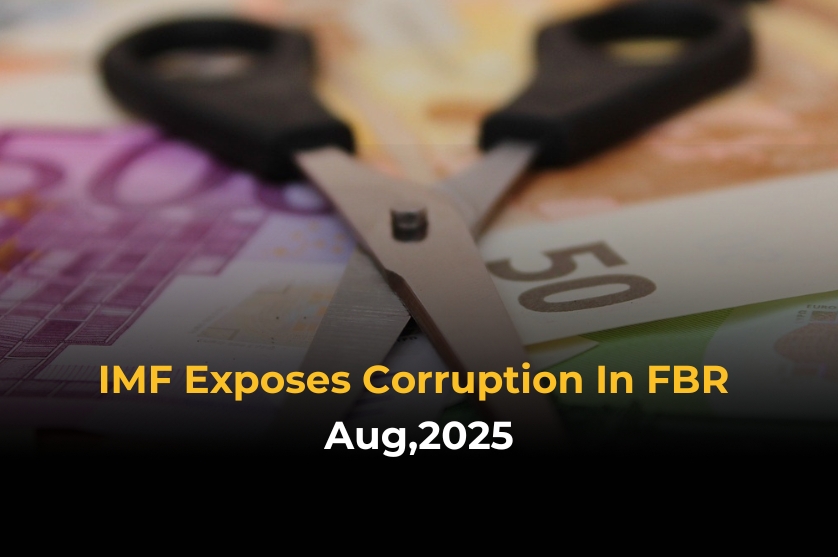What the IMF Diagnostic Report Actually Discovered
During April and early 2025, the IMF team carried out a Governance and Corruption Diagnostic Assessment (GCDA), interacting with approximately 30 government ministries, including the Finance Division, FBR, NAB, and Auditor General of Pakistan.
The IMF Reveals FBR misdeeds: rampant abuse of tax exemptions, unbridled special regime relief, and arbitrary advance taxes and additional withholding taxes.
The report emphasized the absence of segregation between tax policy making and FBR operations, resulting in duplicate responsibilities and unclear decisions
Importantly, it also emphasized the importance of giving complete autonomy to the Auditor General of Pakistan, and prohibiting supplementary grants given without parliamentary approval
The IMF has called for a governance action plan and required a May 2026 progress report to review implementation
Why This Matters for Pakistan’s Economy and Governance
Revenue Loss and Fiscal Crisis
Pakistan’s tax‑to‑GDP ratio is still one of the lowest in the region—rangeing at 9‑10%—well below comparators like India or Bangladesh.
Corruption and poor compliance also keep revenue low, stifling growth.
Governance Failures Fuel Public Distrust
Using the index provided by Transparency International, Pakistan only scored 27 on corruption perception in 2024, well below regional and international averages.
The IMF report verifies systemic weaknesses in oversight and audit controls, further strengthening this impression.
IMF Conditionalities and Reform Timeline
Under the Extended Fund Facility (EFF) and other climate facility amounting to about US $7 billion, IMF review milestones are attached to concrete governance changes. Institutionalizing NAB independence, computerizing asset declarations, and enhancing FBR openness are compulsory benchmarks by mid‑2025 and May 2026.
Principal IMF Suggestions & Suggested Reforms
Cap tax exemptions in all sectors with closer monitoring.
Cut special regime privileges, advance tax, and withholding taxes; compel FBR to provide strategic cut-down plans.
Sever tax policy from FBR operational roles for transparency and less conflict.
Give complete autonomy to the Auditor General of Pakistan.
Prohibit unapproved supplementary grants without parliament approval.
Publicize a governance action plan, and execute reforms by a strict May 2026 deadline.
What Reforms Are Already in Motion?
Digitalization & Performance Metrics
Prime Minister Shehbaz Sharif launched a performance management system at the FBR in April 2025. This entails digital monitoring linked to NADRA, bank data, asset returns, and a new digital invoicing system.
Stronger Audit & Oversight
Improving audit transparency and giving strength to anti‑corruption organizations such as NAB is planned. The IMF demands data-sharing with NAB to take effective action against high-level corruption.
IMF Exposure Harms FBR – Why It’s a Watershed Moment
Public pressure is building: the IMF report has generated debate and media attention nationwide.
Political accountability: top FBR officials have been sacked, and reforms initiated at cabinet and parliament levels.
Fiscal discipline: achieving the IMF timeline could unlock billions in releases and ease reliance on external borrowing.
Rapidly expand tax bases, with a focus on retailers, agriculture, and informal sectors.
Implement legal reform to give statutory autonomy to the Auditor General and restrict discretionary tax allowances.
Complete digitized asset disclosures, audit histories, and risk‑based audits of taxpayers.
Make transparent frequent publication of IMF recommendations and audit reports.
Involve civil society and media to track FBR reforms and enhance public trust.





